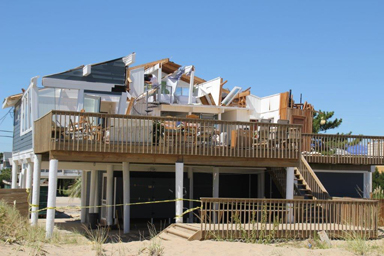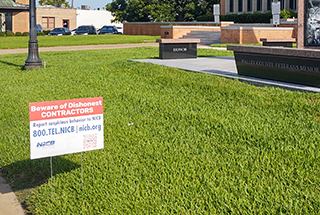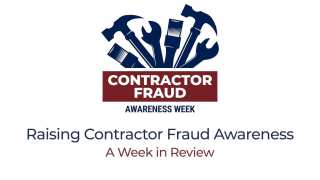Disaster Fraud
Disasters = Fertile Ground for Fraudsters
Unfortunately, many insurance fraudsters prey on disaster victims at a time when they are emotionally devastated and most susceptible to scam artists who present themselves as concerned contractors. In a situation like this, you’re already under tremendous emotional stress, so the last thing you need is someone trying to take advantage of you.
Hurricanes, earthquakes, floods, tornadoes, hailstorms—becoming a victim of a disaster may be impossible to avoid. You can, however, avoid being victimized by dishonest contractors who emerge in droves in their wake.
Don’t be Victimized Twice
It’s bad enough dealing with the aftermath of a disaster without worrying about your contractor. Salespeople often go door-to-door in damaged neighborhoods offering cleanup and/or repair services. While many of these individuals are honest and reputable, others are not. The dishonest ones may pocket your payment or insurance settlement without completing the job. Or, they may use inferior materials and perform shoddy work not up to code.
Also, beware of unscrupulous contractors who offer to manipulate the price to cover your deductible or extra work not caused by the catastrophe. This is insurance fraud, and insurance fraud is a felony. Insurance coverage may be rendered void if there is misrepresentation by an insured.
Tips to Avoid Contractor Fraud
The NICB recommends reviewing these tips before you act on a contractor's offer for services:
- Be suspicious of any contractor who tries to rush you, especially on non-emergency or temporary repairs. If possible, shop around for a contractor by getting recommendations from friends and neighbors. Be wary of anyone knocking on your door offering unsolicited repairs to your home.
- Never pay for work up front. Always inspect the work and make sure you’re satisfied before you pay. Most contractors will require a reasonable down payment on work, but don’t pay anything until you have a written contract.
- Get three written estimates for the work and compare bids. Check credentials with the Better Business Bureau or state attorney general’s office to see if the firm has any outstanding complaints.
- Always have a written, detailed contract that clearly states everything the contractor will do, including prices for labor and materials, clean-up procedures, and estimated start and finish dates. Never sign a contract with blank spaces, which a crooked contractor can alter after they have gotten your signature.
- Don’t believe a contractor who says they are supported by the government. The Federal Emergency Management Agency (FEMA) does not endorse individual contractors or loan companies; call FEMA toll-free at 800.621.FEMA for more information.
- Avoid paying with cash; use a check or credit card instead. This creates a record of your payments to the contractor.
To report fraud, call us at 800.TEL.NICB or fill out our online form.




